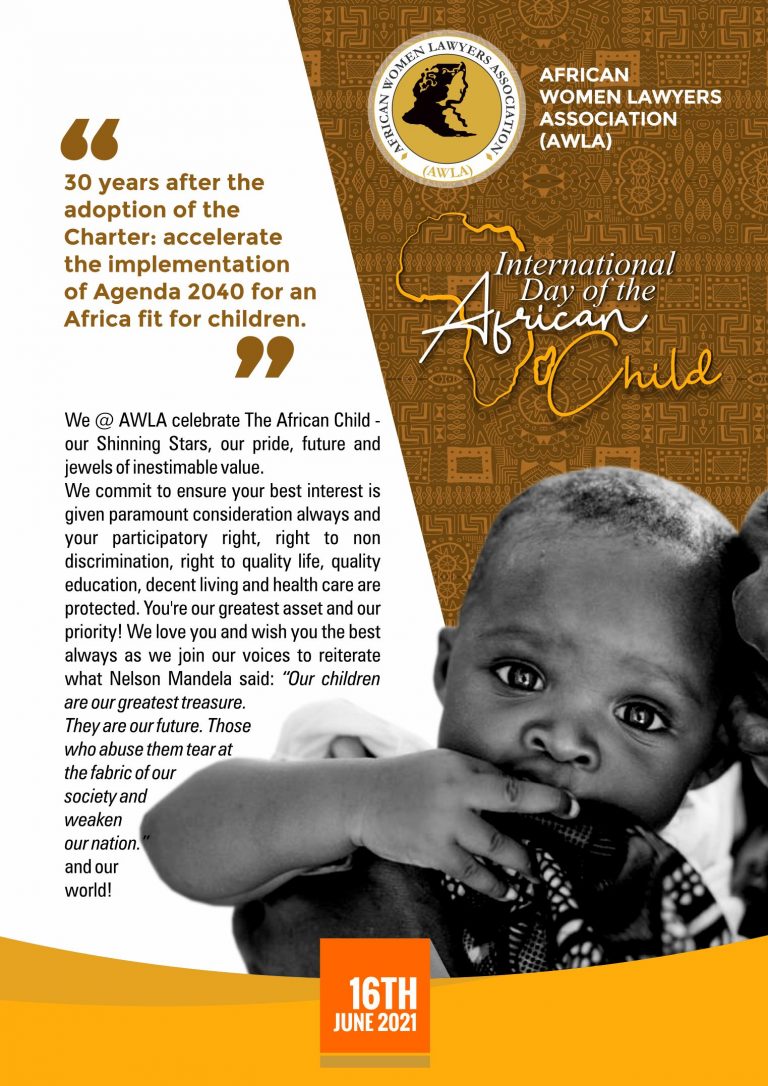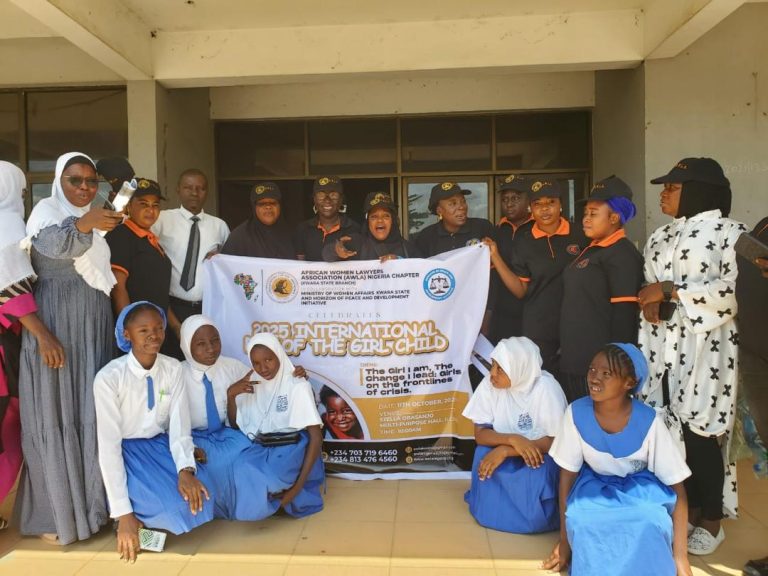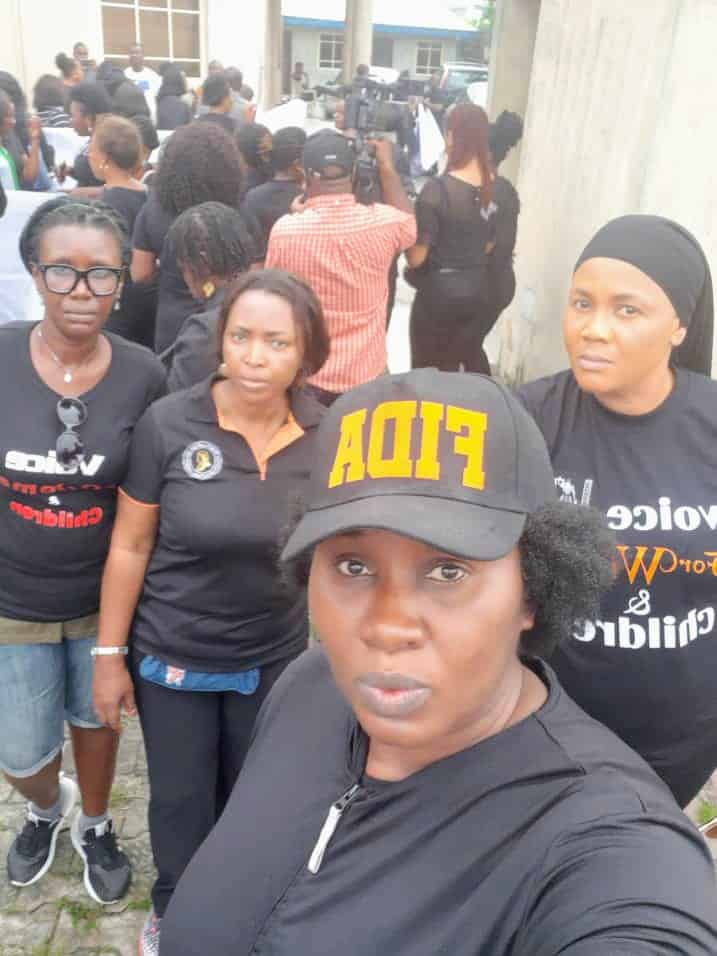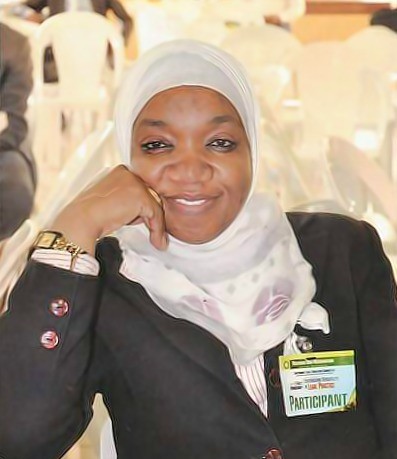Reflections on the International Day of the Girl- Child in Nigeria* By: Mandy Asagba & Oluwatomi Ajayi
It is common knowledge that girls’ progress equals family progress which in turn reflects on the progress of the nation. No wonder, the common saying that when a girl is educated, the society stands to benefit or that ‘getting at the girls has a far more powerful multiplying effect.’ Every year, specifically October 11 is a special day universally observed as the day of the girl-child.
This year 2016. the special emphasis is on the word ‘progress’. UNICEF’s current statistics shows there are about 1.1 billion girls in the world. However, in Nigeria, the Chairman of the National Population Commission (NPC), while celebrating the 2016 World Population Day in July 2016 stated that the population of the teenage girls between 13 and 19 years has increased to 13,787,755. A girl-child in this context is any young girl below the age of 18 years. This is in tandem with the definitions of a child as provided in the 1999 Constitution, the Child’s Rights Act (CRA) 2003, Lagos State Child Rights Law 2008 and other international instruments such as the Convention on the Rights of Child (CRC)1989, the African Charter on Human and Peoples’ Rights 1981 (ACHPR) etc.
Invariably the main vehicle of the girl-child progress is education which makes all the difference in her life. That is the key to sustainable development. Education as its catalyst encompasses everything as it means the girl-child has a right to enjoy all her basic rights listed in the child rights’ laws. She can therefore exercise her rights and responsibilities by speaking out; by being assertive yet disciplined; by making choices and weighing the options available in relation with her safety, future career, mental and physical well-being.
It is necessary to highlight the current challenges hindering the progress of the Nigerian girl-child which are obvious in the areas of sexual violence, cultural practices, religion, health, family matters education. Currently, about five million girls are said to currently out of school in Nigeria. There are also issues arising from conflict and insurgency (such as the abducted Chibok school girls), discrimination against the disabled girl-child and girls who live in rural areas, fundamental violation of girls’ human rights, parental preferences for the boy-child, the emerging technology-related violence against the girl-child and finally the weakness of legal and government policies affecting the girl-child.
Essentially, the rules of International Law regulate States Practice on the subject of the Girl-Child through the United Nations CRC 1989 which in Article 11(1) protects the child against illicit transfer abroad and failure to return them (trafficking in children). Articles 16 and 19 protects the privacy, honour, reputation and family life of a child and this includes protection from physical and mental violence, injury, abuse, neglect, exploitation and sexual abuse. There are equally other provisions against economic exploitation and activities that are harmful to the child’s development. Other provisions in the African Charter on the Rights and Welfare of the Child (ACRWC) provide affirmative actions for girls’ education while overriding harmful African customs, traditions or religious beliefs. It also grants girls the right to return to school after pregnancy.
Collectively, there is an urgent need for all of us to embark on girl-child attention policies in order to help them meet their potentials, being tomorrow’s useful adults, mothers, wives, working women, community change agents, etc. The ideal yardstick for the girl-child progress is to ensure that she is not used for trafficking and pornography. She should not hawk on the streets and be exposed to rape, veneral diseases or unwanted pregnancy. She should not be an overworked housekeeper, tortured, maltreated and denied education in the name of discipline. Parents in rural areas giving their daughters to family members or even strangers in the urban areas should be condemned. Girls should not be kept in orphanages with the evil and end purpose of getting them pregnant and selling their babies. Child-marriage should be discouraged. Local barbaric customs and religion extremism labelling young girls as witches should be stopped. All the girls in the IDP camps and correctional centres/remand homes should be properly looked after.
Who cares about the Progress of the Girl-Child?
Protection of the girl-child is the gateway to her progress. Progress in this context is a state where girls should be able to rely and have faith in the government to get attention and justice. When the world becomes a safer place for the girl-child to thrive or when resources exist to tackle the current challenges facing the girl-child and uplift her status, then there is progress. Nevertheless, it is the government’s duty to protect its vulnerable young girls. The Nigerian Legal Framework however cares because there are more than enough laws which protects the rights of the girl-child in the Child Rights Act of 2003 and Section 17(3)(f) of the 1999 Constitution. Similar law also exist in different states of the federation. In Lagos State for example, the Criminal Law of Lagos State of 2011 protects the Girl-Child by prosecuting offenders who violate the following provisions:
*Section 135 – Indecent treatment of a child is 7 years imprisonment.
*Section 137– Defilement of a Child is imprisonment for life.
*Section 138 –Householder permitting defilement of a child in his premises is 14 years jail term.
*Section 139 – Allowing a child to live in a brothel is 6 months imprisonment or payment of a fine of N90, 000. 00
*Section 141 – Abduction of a girl under18 years with intent to have sexual intercourse with her is 2 years imprisonment
*Section 205 – Duty of Head of Family Head to provide necessaries of life. e.g food, clothing, accommodation, and medical care.
*Section 199 – In exacting discipline, parents/guardian may correct his child/ward for misconduct or disobedience but must not exceed limits. The discipline must be reasonable having regard to his age, physical and mental condition. Punishment is one year imprisonment.
*Section 276 – Fine is N100, 000. 00 for desertion of children.
*Section 277 – Desertion of a pregnant girl incur N45,000.00 fine and duty to incur medical expenses, food expenses, reasonable shelter and other necessaries.
Aside from the laws, there are designated child-helplines and government ministries/ support agencies where girl-child victims can get help and lodge complaints through specialized police family units, Family Courts, Ministry of Youth and Social Development, Ministry of Women Affairs & Poverty Alleviation. The Lagos State Domestic and Sexual Violence Response Team (DSVRT), Office of the Public Defender, Mirabel Centre, African Women Lawyers Association (AWLA Nigeria), International Federation of Women Lawyers (FIDA), Human Development Initiatives (HDI) and other NGOs all play appreciable roles which impact positively on the girl-child. It is on record that Lagos State is the first state in Nigeria to open a sex offenders register after former Governor, Mr. Babatunde Fashola signed an executive order for anyone to mandatorily report those involved in actual or suspected child abuse. Under the Fundamental Enforcement Rules of 2009 also, anybody can sue on behalf of the child that is being molested.
While some progress has been recorded on issues like girls’ protection and education, there is still a lot of work to be done for them to reach their full potential. Some state governments are yet to domesticate the Child Rights Act. According to Hon. Justice Mary Peter-Odili at the NIALS Founders’ Day Lecture in 2013, the failure of the executive arm of government to make concrete investment geared towards putting in place the right policy and mechanism for implementation has forever been a big challenge. Emphasis on the progress of the girl-child will be enhanced
The Solutions are not far-fetched. To enhance the progress of the girl-child, we must have a girl-focused relevant data to highlight the challenges girls’ face. This will enable the government to keep track of their progress and make a checklist with a view to fill the gaps and ultimately provide solutions to the challenges. This is what UNICEF calls the Global Girls Data Movement. For example, the Lagos State government has devised a roadmap of information which has given birth to a Strategic Action Plan (SAP) for marginalized out-of-school girls resident in the 100 slum areas in Lagos. Clearly this is in line with Article 2 of CRC which provides that States must respect and ensure the rights set forth in the Convention while the child’s best interests should be of primary consideration in all actions. It is important to note that ‘best interest’ does not only include providing our girls with good clothes, food, iphones and other e-gadgets, rather her happiness and psychological development also matter because it can affect her stability and security. (Especially when she attains the age of reasoning between 6 years and 17 years as held in a decided case).
There is need for good governance. At all times and especially during this present economic recession, the government at all levels should implement economic empowerment policies that would create jobs for parents or guardians to take care of their daughters. In Nigeria there is a lot of pressure as some girls fall into the dependency group and productive force at the same time. Government should therefore look into initiating scholarship assistance schemes for girls who excel in academics and sponsor others for vocational skills.
Finally, it is very important that the girl-child is enlightened about certain rights and priviledges for her to be adequately protected.
This is possible through creating the girl-child awareness on all the issues earlier mentioned. Indeed there is a clarion call on everyone to help enhance their lives by involving not only family and community members, but also all policy-decision makers who must establish a convincing attitude alongside with the laws on ground, by walking the talk! In September 2016, the Governor of Lagos State Mr. Akinwunmi Ambode led an all-male walk against sexual and gender based violence in the State. The Federal Ministry of Women Affairs and Social Development have also put in place a technical working group of all stakeholders to end child marriage while the Governor of Sokoto State, Mr. Aminu Tambuwal recently laid the foundation for the construction of a new Secondary school in Balle, headquarters of Gudu LGA which is the only Council without a secondary school in Nigeria! One can imagine the plight of the young girls living in this village.
As we celebrate Nigeria at 56, it calls to question why millions of girls are still out of school. It calls for everyone to question the where-about of the kidnapped Chibok school girls. It calls to advocate for the advancement and fair treatment of the girl-child in our immediate environment and beyond. It calls to be extra vigilant over the girl-child’s’ basic human rights and to continue addressing the consciousness of adequate protection for the girl-child. By doing these and more, it is submitted that adherence to the principles of the girl-child rights as human rights, parental supervision of the girl-child and further investing positively in the girl-child ensures progress and security for our nation, for when the girl-child makes progress, the world equally makes progress.
*Mrs. Mandy Asagba & Mrs. Oluwatomi Ajayi are Legal Practitioners & Members of the African Women Lawyers Association (AWLA Nigeria)





